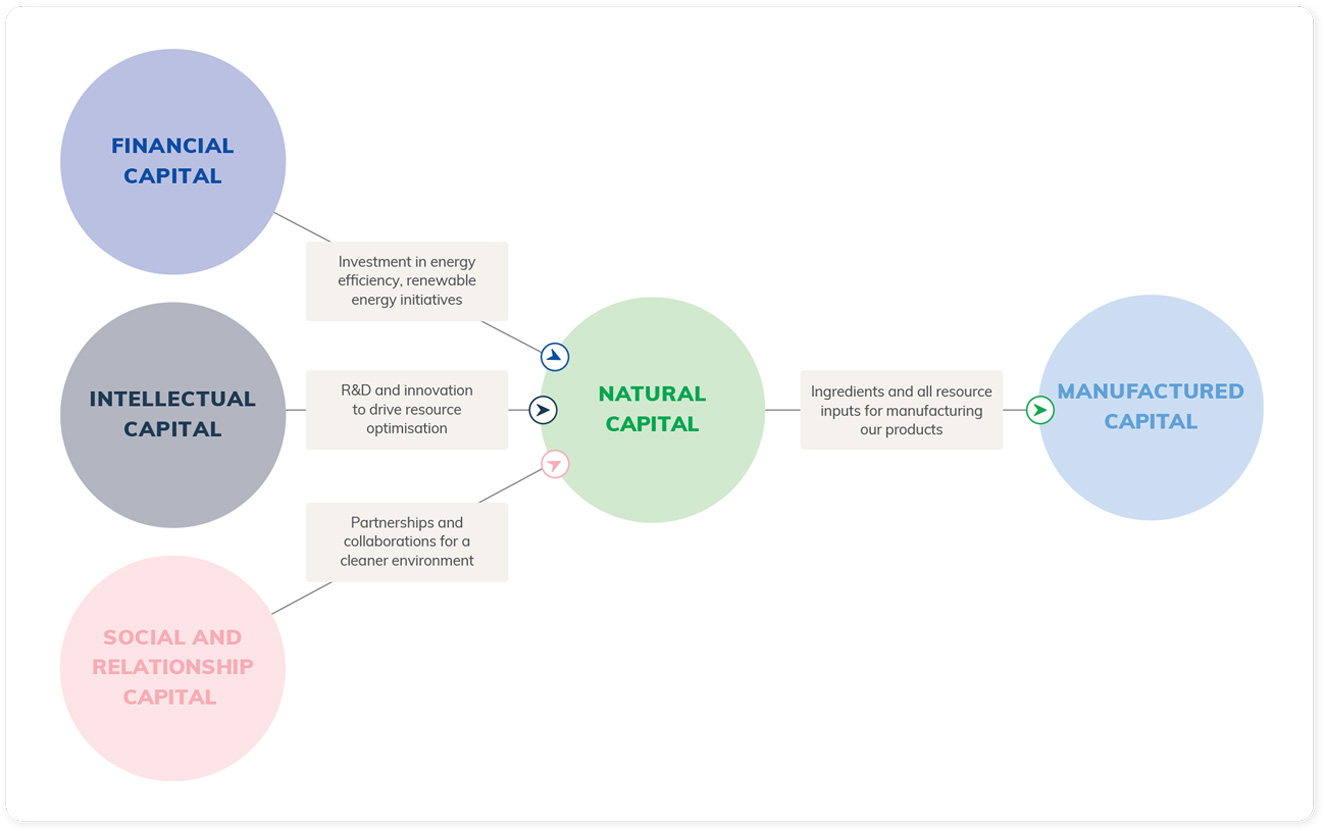For A Better
Planet
SDGs IMPACTED


Conserving natural resources, protecting ecosystems
Although our direct material impact may be limited, we recognise the significance of conserving nature and protecting the planet. Hence, we are doing our bit.
VISION
Clean energy, replenished water, preserved biodiversity, pioneered-circular economy
TARGETS
Net Zero
By 2040 across all geographies
Zero waste to landfill
By 2030 across all geographies
Water-neutral
Across all operations by 2030
100%
Of packaging material to be recyclable, compostable, or reusable across all geographies by 2030
Stakeholders impacted
COMMUNITIES
Through Project Jalodari - our flagship community water-management programme, we aim to provide a sustainable water source, raise awareness, and build capacities around water and sanitation in the communities where we operate. This multisectoral intervention integrates water and food security, sustainable agriculture, sustainable forestry, and renewable energy into the developmental paradigm of the community.
We are currently partnering with Tata Trusts and Tata Water Mission on Water and Sanitation (WASH) projects in Himachal Pradesh and Assam that impact over 25,000 community members.
Modes of engagement
Regular interaction with Tata Consumer CSR teams and impact assessments
ENVIRONMENT AND ECOSYSTEM
Human activity is inextricably linked to nature. We are mindful of the interplay between different elements that comprise the ecosystem and ensure that our operations do not disturb this balance significantly. We are cognisant of the potential implications of climate change and are committed to responsible utilisation of natural resources such as energy, water, and land, among others.
Modes of engagement
Environmental initiatives, including energy efficiency, renewable energy, water
Material issues
The material issues identified in the ‘For a Better Planet’ pillar are aligned with the objectives of Tata Group’s Project Aalingana.
Towards achieving our goal of lowering emissions and reaching Net Zero, we place emphasis on enhancing energy efficiency and increasing the share of renewable energy in our energy mix.
We strive to make a positive difference on the natural ecosystems where we operate. Therefore, we are developing a strategy that aligns with nature-based solutions, which will enable us to make meaningful contributions in this direction.
Transitioning to a circular economy is critical to fulfilling our commitment to efficient resource use. We ensure our packaging is fit-for-purpose and has low environmental impact throughout its life cycle.
Highlights FY 22-23
GENERAL
WATER MANAGEMENT
WASTE MANAGEMENT
WASTE TO LANDFILL
(India Beverages)
(%)
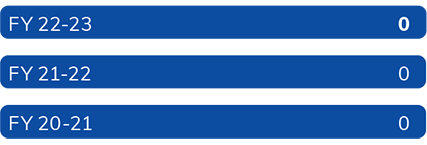
EMISSION INTENSITY
(Emission/Consolidated Revenue)
(MTCO2e/INR Cr)
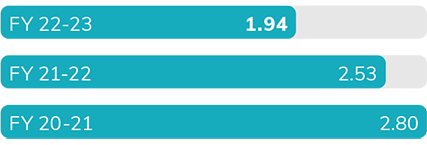
GREENHOUSE GAS
EMISSIONS
(MT CO2e)
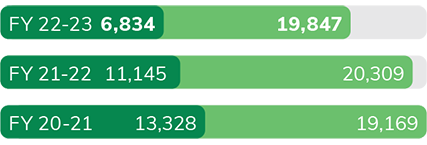
In 2022-23, scope 1 absolute GHG emission has reduced owing to the renewable energy use and switching to alternate energy sources.
 Scope 1
Scope 1
 Scope 2
Scope 2
Performance update
DRIVING NET ZERO
Renewable energy
We have been increasing the use of renewable energy across our operations, and throughout our supply chain. We have installed rooftop solar panels and use biomass briquettes for boiler operations. Tata Consumer’s use of renewable energy constituted about 19% of the energy mix in FY 22-23.
Energy efficiency
We have undertaken projects to upgrade conventional equipment to highly energy efficient systems.
The carbon footprint of our tea and coffee estates is closely monitored, quantified, and independently verified by the British Standards Institution (BSI) in accordance with ISO 14064 requirements.
Several energy conservation measures have been implemented at our Packeting Centres, including new multitrack packing machines, LED lights, motor upgrades, among others. Consequently, the Dam Dim Packeting Centre conserved over 1.8 lakhs KwH of energy across 3 years.
The unit was awarded the first prize under Consumer Goods category at the National Energy Conservation Awards 2022 (NECA 2022).
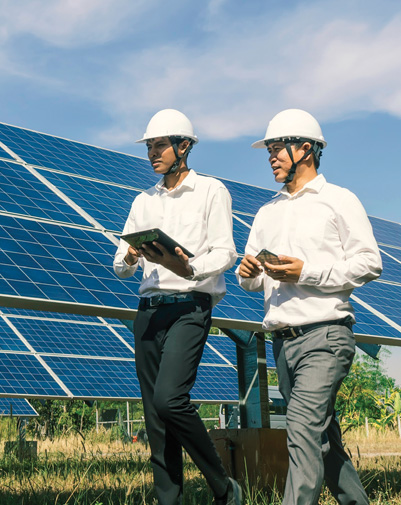
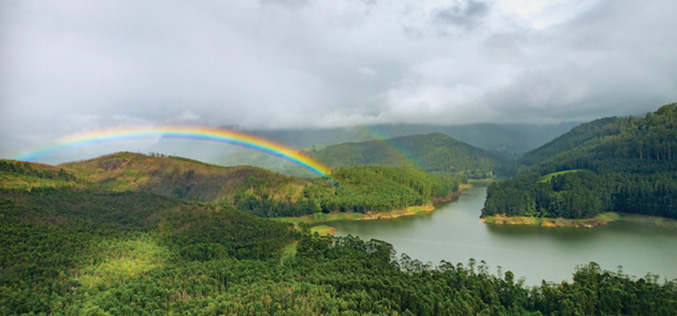
Our associate Company, Kanan Devan Hills Plantations (KDHP), has plantations spread across 59,000 acres of land and employs over 10,000 people. In a first among large plantation companies in India, KDHP has received Carbon-Neutral certification and net-negative emission status.
A scientific study conducted at our Munnar plantations found that the amount of carbon sequestered in KDHP’s landscape was four times greater than the amount emitted. KDHP’s environment-friendly practices result in the release of approximately 3,90,000 tonnes of oxygen per year.
PIONEERING CIRCULAR ECONOMIES
We are one of the founding members of the India Plastics Pact and are also members of the UK Plastics Pact and the EU Plastics Pact. Tata Consumer’s representatives play an active role in the advisory committees and Collaborative Action Groups (CAGs) to develop plans for sustainable management of packaging. Combating challenges like cost, market performance, consumer protection, and waste management, we strive to ensure our packaging is fit-for-purpose and made from material which is reusable or recyclable at the end of its life.

Tetley, a global brand, is known for upholding social and environmental standards, aligned with the overarching objectives of the Tata organisation.
As a result of our focused efforts, we reduced the diesel consumed in transporting tea to the UK factory by 3,08,086 litres and distance travelled by 730,000 miles-the equivalent of removing 828 tonnes of CO2.
OUR JOURNEY TO NET ZERO
97% Renewable Energy
To power our UK factory
Dedicated solar farm at our UK factory
Any surplus solar power is fed into the National Grid
Renewable Energy via our Biomass Boiler
100% green electricity

Efficient Production and
Zero Waste to Landfill
Zero waste goes into landfills across both our factory and our office in the UK

Carbon Removal
We are doing well with Scopes 1 and 2 in our UK operations, but now have to work on all the things outside our direct control, from transport to customers boiling their kettles
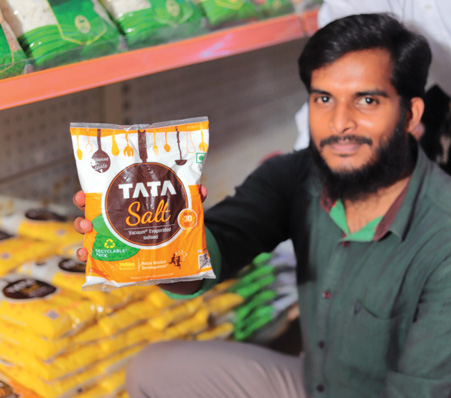
Extended producer responsibility (EPR)
In India, we are fully compliant with the extended producer responsibility (EPR) requirements since 2018. Partnering with designated waste producer responsible organisations (PROs) in several states and Union Territories, we recover the equivalent of 100% of the packaging for our Beverages, Foods, and RTD divisions.
Sustainable and optimised packaging
Our R&D division includes a specialised team that works on sustainable packaging and innovations, including reducing, optimising, replacing packaging materials with sustainable alternatives, and encouraging consumers to recycle packaging.
International markets continue to work towards achieving 100% reusable recyclable or compostable packaging by 2025.
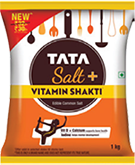
Partnering with suppliers, R&D and packing centres, the existing Tata Salt 1 Kg pouch weighing 4.45 g was re-engineered to weigh 3.96 g, or 11% less. This move is expected to reduce plastic consumption by about 277 t.

Our Good Earth and Teapigs ranges are already 100% plant based. We are working to convert our Tetley brand and are planning for the commercial roll out in the UK in 2023.

The Tetley range is now in a fully recyclable carton, envelope and compostable tea bag, aligned to the France compliance requirement.

In Poland, we relaunched 17 Vitax SKUs, without plastic overwraps and introduced a plastic-free knotted string and tag teabag.

Tetley participated in Tesco’s store trial with Loop, the zero waste to landfill refill service, providing shoppers the opportunity to buy Tetley tea bags in reusable cannisters. Key insights gained from this trial indicated that it helped the brand make in-roads into a key consumer group comprising younger and more affluent individuals.

WATER NEUTRALITY
Project Jalodari
Part of Tata Trusts' WASH (Water, Sanitation, and Hygiene) initiative, Project Jalodari aims to support approximately 2.5 million individuals across 4,000+ villages in 12 states. In Himachal Pradesh, it has assisted rural communities to recharge 314 million litres of water and has also raised awareness of water conservation and sanitation in Assam.
Impact on Paonta Valley, Himachal Pradesh
Impact on Jorhat and Golaghat districts, Assam
ZERO WASTE TO LANDFILL
All our beverage factories globally are ‘zero waste to landfill’ sites.
We are now working to manage food loss. Products, which expire or do not meet our rigorous quality requirements, are being collected and processed into animal feed.
PRESERVING NATURE AND BIODIVERSITY
We contribute to protecting biodiversity hotspots and forests near plantations of our subsidiary and associate companies in Coorg, Munnar, and Assam. Our conservation efforts involve guarding forest areas and preventing human intrusion.
We also implement nature-based solutions including projects such as ecosystem restoration, ecosystem protection, or management of ecosystem-specific issues.
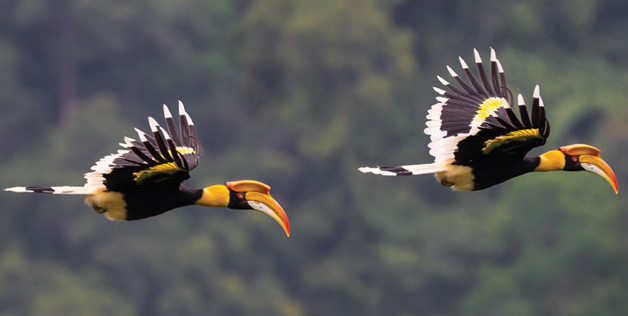
Some of Tata Coffee’s biodiversity-conservation projects include:
- Rainforest restoration in the Valparai landscape, Coimbatore District
- Conservation of Great Hornbill (Buceros bicornis) in the tropical rainforest and human-modified landscapes of Anamalai Hills
- Conservation and management of elephant corridors to prevent Human-Animal Conflicts in the plantations
- Agroecosystem conservation and management of avian species diversity in coffee and tea plantations
- Partnering with the Nature Conservation Foundation (NCF) and supported by indigenous tribes, Tata Coffee has protected and restored 18 fragmented rainforest segments in the Anamalai Hills.
For further details please refer Protectors of Forests | Sustainability | Tata Group

We contribute to protecting biodiversity
hotspots and forests near plantations of
our subsidiary and associate companies
in Coorg, Munnar, and Assam.

Interplay of capitals
